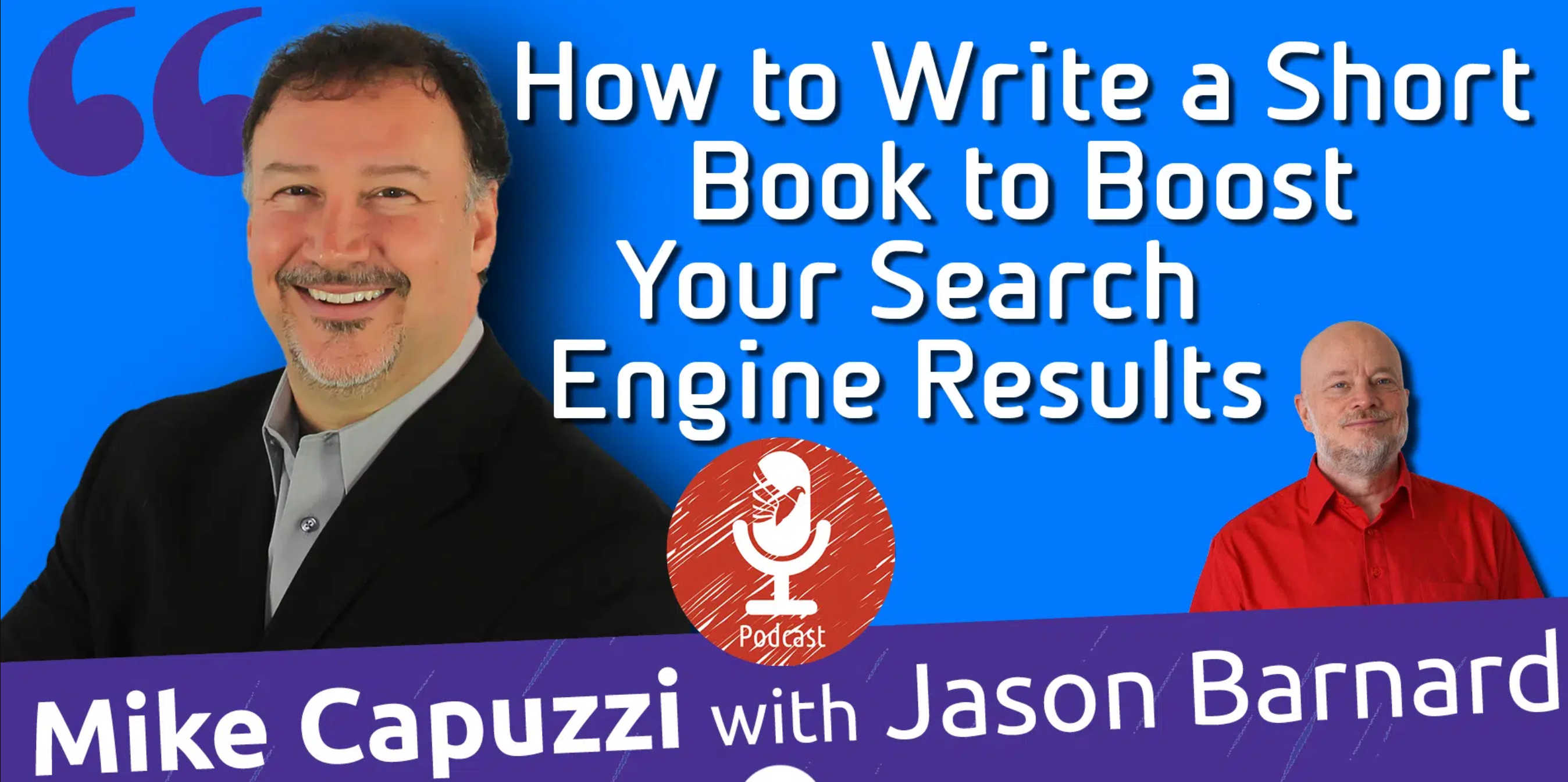
As marketing experts, we’re always looking for new strategies to help our clients. After all, we want to make sure we deserve our expert title. Recently, that led us to a great interview between Jason Barnard of Kalicube and Mike Capuzzi, author, nonfiction book coach, and short book publisher for business owners, entrepreneurs, and CEOs.
The interview was titled, “How to Write a Short Book to Boost Your Search Engine Results.” As the creator of shooks – short, helpful books – Mike has a lot of valuable information to share in this area. He’s the author of several shooks, including:
- The Magic of Free Books
- The 100-Page Book
- Main Street Author
- The Magic of Short Books
If you’re looking for a new marketing strategy to boost your online presence, shooks could be the answer. Here are our main takeaways from the interview.
Table of Contents
Short books are most helpful for business readers
Shooks are short, helpful nonfiction books that are business oriented and must serve the reader. That’s critical.
As Mike said, authors don’t need to uselessly repeat themselves just to get a longer book. That helps no one. Shooks are meant to be a highly focused, one to two hour read. They are typically around 100 pages long, or 12,000-15,000 words.
Shooks are not for those afraid of marketing
These books are meant to be marketing and sales tools, which makes sense given Mike’s background. When someone reads a book they are looking for information. If the author provides good content, it’s reasonable to expect that some percentage of readers are going to want more.
Good.
Use the shook to give them more. Share your email address, tell them where to find other content you’ve created, and point them to any more shooks you’ve published. Upsells don’t make a book less valuable – as long as you aren’t excessively pushy.
Serving the reader well is the main goal
Your book must have one main, big idea. Remember, you don’t have a lot of room here and that’s okay. You aren’t trying to tell someone everything you know about your area of expertise. Instead, you are having an hour-or-so conversation with them, introducing them to something critical they need to know. You probably already do this on a daily or weekly basis. Your book is simply another conversation. Let your personality come through so that people want more to do with you.
If you have more to say, write another book. If you need help keeping yourself focused and accountable, find an expert like Mike.
Define your audience before you start writing
Are you writing for someone very familiar with what you do? Or someone pretty new to the field? Remember, you are an expert in whatever you are writing about, but not everyone who picks up your book will have the same background.
What can you assume they know and what do you need to explain? After all, you didn’t always know everything you know now. Are you writing for who you were ten years ago, or who you were six months ago?
Your book should stand out
As with any marketing tool, you can’t appear the same as everyone else out there. Your book must help you stand out from your competitors and should establish your credibility.
For example, there are lots of books that promise to teach people how to write. Mike stood out by focusing on 100-page books. He made it very clear in his book’s title and description what he offered and why it mattered.
This isn’t anything new. It’s the same thing you do with any marketing concept whether you’re creating a keynote speech, a Google ad, or anything in between. The important thing is not to forget it as you plan out your book and take this new step.
Money earned will come from the backend, not from book sales
If you write a book that follows Mike’s format, making money selling that book is not and should not be your main focus.
Instead, money is earned by how well the book serves you as a marketing tool. You want someone to read your book, to understand that they need whatever you provide, and to then buy your product or sign on with you as a client.
That’s how you make money. The book might even open new advertising avenues for you such as podcasts or interviews. From this angle, even a free book can be a strategic tool. As long as you write a book that is helpful for readers and establishes your authority and expertise, you’ve done well.



